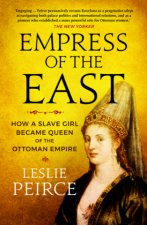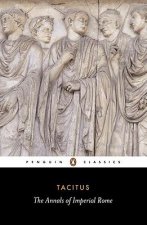
Kód: 01198503
Lebanon
Autor William Harris
For most Americans, the civil war in Beirut is their sole point of connection with Lebanon. But Lebanon, a crossroads of major religious communities, has held a central place in the geopolitical significance of the eastern Mediter ... celý popis
- Jazyk:
 Angličtina
Angličtina - Vazba: Pevná
- Počet stran: 400
Nakladatelství: Oxford University Press, 2012
- Více informací o knize

1236 Kč
Dostupnost:
50 % šance Máme informaci, že by titul mohl být dostupný. Na základě vaší objednávky se ho pokusíme do 6 týdnů zajistit.
Máme informaci, že by titul mohl být dostupný. Na základě vaší objednávky se ho pokusíme do 6 týdnů zajistit.Prohledáme celý svět
Mohlo by se vám také líbit
-

Black Hills
294 Kč -

Tree Wisdom
287 Kč -

Hobit
263 Kč
Dárkový poukaz: Radost zaručena
- Darujte poukaz v libovolné hodnotě a my se postaráme o zbytek.
- Poukaz se vztahuje na celou naši nabídku.
- Elektronický poukaz vytisknete z e-mailu a můžete ihned darovat.
- Platnost poukazu je 12 měsíců od data vystavení.
Informovat o naskladnění knihy
Zadejte do formuláře e-mailovou adresu a jakmile knihu naskladníme, zašleme vám o tom zprávu. Pohlídáme vše za vás.
Více informací o knize Lebanon
Nákupem získáte 124 bodů
 Anotace knihy
Anotace knihy
For most Americans, the civil war in Beirut is their sole point of connection with Lebanon. But Lebanon, a crossroads of major religious communities, has held a central place in the geopolitical significance of the eastern Mediterranean and the Middle East for many centuries. In this book, William Harris synthesizes the history of Mount Lebanon and the surrounding areas within the modern Lebanese state-from the Islamic conquest of the Levant to modern times. Harris relates the communities that characterize Mount Lebanon and its vicinity, while interpreting the evolution of modern Lebanon in its multi-communal context. He traces the consolidation of Lebanon's Christian, Muslim, and Islamic derived sects from their origins between the sixth and eleventh centuries. The identities of Maronite Christians, Twelver Shia Muslims, and Druze, the mountain communities, developed alongside assertions of local chiefs under external powers from the Umayyads to the Ottomans. The chiefs began interacting in a common arena when the Druze lord Fakhr al-Din Ma'n achieved domination of the mountain under the Ottomans in the early seventeenth century. The book offers a fresh perspective on subsequent trends, knitting together the interplay of the elite under the Sunni Muslim Shihab relatives of the Ma'ns after 1700 with demographic instability as Maronites overtook Shia as the largest community and expanded into Druze districts. By the 1840s many Maronites conceived the common arena as their patrimony. Maronite/Druze conflict ensued. Modern Lebanon arose out of European and Ottoman intervention in the 1860s to entrench sectarian peace in a special province. In 1920, after the Ottoman collapse, France and the Maronites enlarged the province into the modern country, with a pluralism of communal minorities headed by Maronite Christians and Sunni Muslims. The book considers the flowering of this pluralism in the mid-twentieth century, and the strains of new demographic shifts and of social resentment in an open economy. External intrusions after the 1967 Arab-Israeli war rendered Lebanon's contradictions unmanageable and the country fell apart. The book contends that Lebanon has not found a new equilibrium and has not transcended its sects. There is an uneasy duality: Shia have largely recovered the weight they possessed in the sixteenth century, but Christians, Sunnis, and Druze are two-thirds of the country.
 Parametry knihy
Parametry knihy
Zařazení knihy Knihy v angličtině Humanities History Regional & national history
1236 Kč
- Plný název: Lebanon
- Autor: William Harris
- Jazyk:
 Angličtina
Angličtina - Vazba: Pevná
- Počet stran: 400
- EAN: 9780195181111
- ISBN: 0195181115
- ID: 01198503
- Nakladatelství: Oxford University Press
- Hmotnost: 649 g
- Rozměry: 241 × 170 × 37 mm
- Datum vydání: 19. July 2012
Oblíbené z jiného soudku
-

Empress of the East
334 Kč -

Rise And Fall Of The Third Reich
534 Kč -

History of Nepal
725 Kč -

Beyond Band of Brothers
383 Kč -

Secret History
299 Kč -

Conquest of New Spain
333 Kč -

Families Who Made Rome
433 Kč -

Angela's Ashes
283 Kč -

Seven Military Classics Of Ancient China
516 Kč -

Butchering Art
288 Kč -

Washington
487 Kč -

Great Game
383 Kč -

Stayin' Alive
521 Kč -

Sherman Firefly vs Tiger
408 Kč -

Witnesses to a World Crisis
2705 Kč -

Great Britain's Great War
323 Kč -

Quest for Decisive Victory
951 Kč -

Kublai Khan
309 Kč -

Anti-Intellectualism in American Life
419 Kč -

Traveller's History of Southeast Asia
322 Kč -

Selected Writings 1920-1969
796 Kč -

Hundred Years' War on Palestine
318 Kč -

Ten Myths About Israel
317 Kč -

Ethnic Cleansing of Palestine
347 Kč -

Decline and Fall of the Roman Empire
121 Kč -

The Balkans, 1804-2012
508 Kč -

Strange Death of Europe
374 Kč -

Diana: Her True Story - In Her Own Words
298 Kč -

The Secret Diaries Of Miss Anne Lister: Vol. 1
304 Kč -

Giza Power Plant
365 Kč -

Medieval Monsters
259 Kč -

Citizens
508 Kč -

Dictatorland
298 Kč -

Millennium
347 Kč -

Memoirs from the House of the Dead
261 Kč -

Maurice's Strategikon
736 Kč -

Voynich Manuscript
990 Kč -

Last Voyage of the Lusitania
437 Kč -

Annals of Imperial Rome
334 Kč -

Anatomy of the Nuremberg Trials
367 Kč -

Barber of Damascus
949 Kč -

Strike and Hold
625 Kč -

Moshe Dayan
675 Kč -

Palestine
513 Kč -

The Fourth Turning
415 Kč -

Londoners
298 Kč -

How to be a Victorian
334 Kč -

Line in the Sand
249 Kč -

History of Japan
405 Kč
Osobní odběr Praha, Brno a 12903 dalších
Copyright ©2008-24 nejlevnejsi-knihy.cz Všechna práva vyhrazenaSoukromíCookies


 Vrácení do měsíce
Vrácení do měsíce 571 999 099 (8-15.30h)
571 999 099 (8-15.30h)